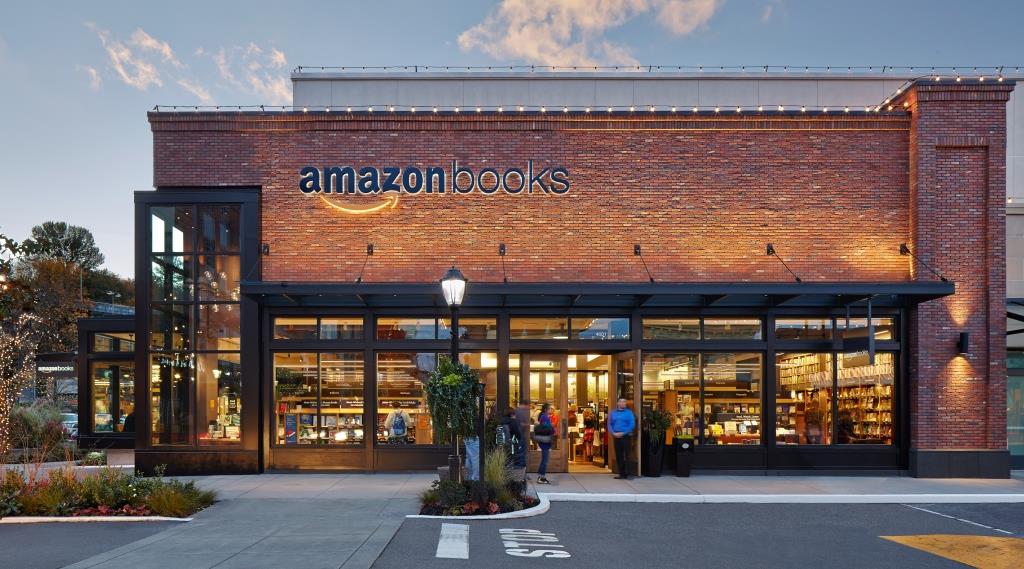Keep the Electronic, But Give Us the Hard Copies of Books As Well!

It is safe to say that we have been on quite a rollercoaster ride since e-commerce opened its doors to online purchases and subsequently led to shutters down for a vast majority of traditional brick-and-mortar bookstores in India and across the world – a phenomenon that continues even today.
With heart-wrenching news of many of our beloved ‘reading havens’ shutting shop and surrendering to devices like Kindles and Ipads as the new reading platforms, paper book aficionados like myself who are also fierce advocates of early technology adoption can’t help but yearn for the best of both worlds in one place.
Then in 2015 Amazon answered these prayers. In November 2015, the online giant opened its first Amazon Books store in a shopping center in Seattle, Washington. Beautifully marrying the conventional with the digital space and thereby attracting both the tenacious paper book lovers and tech enthusiasts under one roof, Amazon has gone a step further.
With a tall order of 5000 books lining their walls, covers facing outwards instead of spines, and also housing Amazons’s technology offerings such as Amazon Echo Speakers, Amazon Fire TV, Kindle Fire tablet and e-readers, Amazon Books has changed the game yet again by molding its product strategy in line with the complex needs of the consumer today. With four more stores up and running and plans for six more in 2017, this masterstroke has revealed their intention to turn away from the current tide that is crushing store businesses and not focus on the e-retail space alone.
One of my favorite Jeff Bezos quotes is “If you're competitor-focused, you have to wait until there is a competitor doing something. Being customer-focused allows you to be more pioneering."This of course, holds true for any kind of business one is in.
Unlike other industries and businesses, the publishing world can only be volatile to a certain extent. Dramatic changes and competitor advantages are limited only to the advances in technology platforms where one can read and publish material. Social media, phone and ipad reading is already the news of both yesterday and today.
But it is important for publishers to understand that while technology must be adopted at the onset, the paper book reader will never entirely become a thing of the past.
Also launched in India in 2015 was Juggernaut Books - a new venture spearheaded by the inimitable Chiki Sarkar, brilliantly revolutionizing the accessibility and availability of short and long form reading and publishing on the go on your devices. An admirable venture that excited me as much as every other fiction and non-fiction reader and writer, I couldn’t help but also feel the familiar pang of yearning return.
A CEO of a local bookstore in Oregon, Portland, stated on Amazon’s move to open physical stores that “something special occurs in a physical bookstore that is not replicable online.” If you are a bookstore freak like me, you will be nodding your heads too.
Technology, as we know, is no match for human experiences. In the age of dire speculation that robots are not far away from taking over our jobs and our lives, the human experience of touching and feeling is our fringe benefit. Amazon seems to have understood this well and picked up on it. The concept of the Amazon Book Store weaves into its business model that of the online store perfectly, in that the bookstore also offers features unique to the online store like positive book reviews from the website, star-ratings, assurances that the prices customers pay are the same as they would online and bar code scanners that pop up the discounted prices in a flash; the nuances from both worlds are a dream come true for the tech-savvy, book loving consumer of today.
Not to mention the electronic gadgets inconspicuously on display throughout the store allowing verbal commands for audio book reading, scouting for titles or just giving you the latest game score.
This hybrid model of clubbing digital and conventional book store offerings seems to be the future of Indian publishing too. In 2015 the ‘India Book Market Report’ released by global market research firm Nielsen promulgated the Indian Print Book Market to be worth a staggering 26,060 crore of rupees, reaffirming past reports and declarations of India being the sixth largest book market in the world and second largest in English books.
With the literacy rates in adults expected to rise considerably by 2020, the demand for reading material is set to soar. Coupled with this are the simultaneously rising purchase figures on e-commerce that are threatening to further rock the dwindling boats of brick book stores in India.
Now more than ever is the time for India too to strike while this iron is hot. To adopt an Amazon Books-like strategy and recognize that the way forward is not around the issue but through it, hand in hand. That bricks and clicks can co-exist and be the best possible outcome.
The world of publishing thrives on both a product plus services approach, successful only if they are able to deliver a combination of the two to its customer.
While we need the Juggernauts of the world in our corner too, the true Juggernaut is still just a vision in most parts of the world.
We just need to reach out and grab it.



